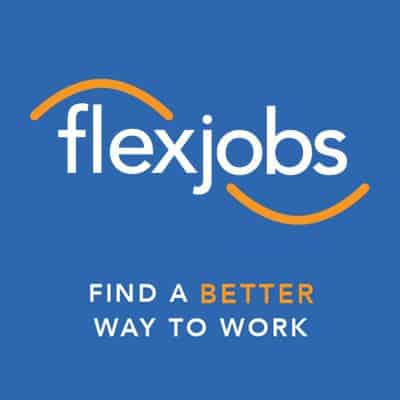

As social media matures from shiny object to something of a utility, people are becoming more critical of the online spaces they inhabit.
In this article we’ll discuss a few key factors that one might want to consider before joining a digital nomad group or online business community to avoid disappointment, wasted time and effort, or worse.

Why Join a Digital Nomad Community?
If you’ve found us through your preferred search engine, you probably already know why joining a digital nomad community is valuable for you personally –but for the sake of readers who stumbled upon this article by other means we’d like to take it from the top and start with why.
Who Stirred You?
At first, realizing your ambition to become a digital nomad can be as liberating as it frightening, and starting a dialogue with the content creator who red pilled you isn’t always possible or advised.
In some cases, meeting the author of a well-known book or blog is a total disappointment.
People who influence you may not have the time to coach you personally or answer your questions in a timely manner. So many questions, and no one to answer them in a way that you find meaningful.
Who Do You Want to Be in Five Years?
Becoming a member of any community isn’t only about the goal du jour, it’s about your trajectory.
In online forums like Facebook or Reddit, digital nomads discuss online income strategies but it’s their approach to different lifestyles that set them apart.
The digital nomad lifestyle is merely an umbrella —a catch-all for any location independent lifestyle enabled by an online income.
Digital nomad communities like The Roaming Economy go beyond the generic digital nomad lifestyle prescription to include proponents of van life, tiny house living, and full-time sailboat cruiser lifestyles.
The value of a community lay in its nuance. Anyone can figure out how to make money online, but what do you want to do with the freedom an online income enables?
Joining the right online forum, community, or group will set you up for the long haul, and go beyond today.
You Don’t Know What You Don’t Know
While there’s plenty of ‘how to be a digital nomad‘ material on the internet, inserting yourself into the discussion will fill in gaps of knowledge and ultimately help you avoid mistakes, like forgetting to setup certain accounts in advance or figuring out how to handle delicate financial matters that are specific to your unique situation.
Joining a community will give you a glimpse into the day-to-day location independent lifestyle so you can decide if it’s right for you —while providing a venue where you can get to know a destination and make nice with people there before you go.
Beyond logistics, income strategies are often par for the course. Even if you’re not interested in travel, full-time digital nomads are known for their diversified online income strategies and ability to improvise cash flow on the fly.
You’re the average of people you surround yourself with. Joining a community of mercurial entrepreneurs and internet hustlers can be an asset in itself, and shave years off your own learning curve. Even if you’d rather work from the comfort of your home in the city you were born in.
In short, the right digital nomad community will be your “golden parachute”, if you choose wisely.

What to Consider Before You Join a Community
There are several different approaches to community building, and depending on what you’re looking for, some of these may be a good fit while others may be better to avoid altogether.
Community demographics are important —what suits one demographic may not suit another. And with this in mind, let’s drill down into what makes one membership site more valuable to you than another.

The “All-Inclusive, Everyone Welcome” Community
Firehose communities that take everyone in often lack focus and direction; they’re overcrowded, hard to manage, and moderators possess a “take it or leave it” attitude. For the founder of this community, massive ‘one-size-fits-all’ groups could be little more than a vanity metric for their own brand to bring them sponsorship deals and business opportunities.
Large head counts mean moderators are strained (and/or don’t give a f***), and you’re going to see a lot of posts that don’t relate to what you’re specifically asking for.
There’s often a higher propensity for spam posts, mean-spirited trolling, self-promotional lifestyle pimps, and social justice conflagration. Too many voices, no harmony, and little substance.
They could be considered free, ‘as in beer’ –where you get the beer for free but you still pay with a hangover.
In the case of a ‘one size fits all’ online community, you pay with your time and a lack of meaningful connections or accountability.
Over time, they wind up serving the lowest common denominators —the beginner, the troll, and the bitter. It’s hard to level up beyond the ‘beginner majority’ these groups often possess, and their contagious mindset.

Demographics Matter
Each demographic within one community is going to have their own set of values, challenges, and approach to making money online.
For instance, solo travel men and women will be looking for fun and assume more risk in their financial dealings, whereas digital nomad families will be focused on safer family-friendly travel and less risky income strategies.
Communities that try to bridge the gap between different demographics require an understanding of each to help them engage meaningfully with one another. They’ll need to have thought leaders on board from each disparate niche or demographic.
Focus on a thread that unites them all is important, like their ability to earn money online —while giving each demographic a space for them to speak with one another about their own unique challenges.
With this in mind, it is important to consider who the founding members are, how they live, and how they earn an income.

The “We’ll Just Put This Here” Community
Administrators of these communities spend no time exploring the mechanics of how their ‘virtual country’ will grow or evolve over time, and just drop it on whatever social platform is most convenient to them at the time.
Like nation states, communities are as complex as the people who take part in them, and in most cases a simple Facebook group may become overcrowded and disorganized quickly.
Just as nations have provinces or states, a prudent community administrator will segment their members into interest and topic-based sub groups to ensure that everyone is sharing in a cohesive space. The platform any online community rests on is a key ingredient for member retention and success.
To be poised for growth, nested groups within groups are an overlooked necessity. Putting everyone in one feed is a recipe for confusion.
This is where Facebook fails, and an emerging community platform like BuddyBoss shines.

When to Pay for Community Membership
A larger community isn’t necessarily better. When you pay for a community you’re likely to find that group discussion quality and flow aren’t just a coincidence; it’s baked into the business model, right from its inception.
Paid communities potentially have more to offer in terms of learning opportunities and quality relationships because administrators have financial incentive to measure and vet every member before they get access.
When you pay to be a member of a community you become a shareholder, and your voice, input, and suggestions are more likely to be heard. The “take it or leave it” mentality flies out the window.
Paid membership sites are often invite-only, and merit based. And as such, they don’t take on much dead weight. Meaning that just about every member in the community has the potential to share something you might value.
They’re people you be happy to meet in the street and share a pint with, if only just to pick their brains and learn from their unique experience.
The membership dues allow the community to stay smaller, and more manageable. Members typically adhere to a clearly defined set of values, and there’s more cohesion between them.
In real life, people who have nothing to bring to the table are usually the first that one leaves behind when they become serious about getting goals accomplished. You can only benefit if you keep this in mind when you choose an online community to contribute to and learn from.

Wrapping It Up
Everyone uses the internet selfishly. The last search you did on Google will likely highlight that notion.
It’s all about you. You join a community or make a friend or take a job because of how it makes you feel, what you can learn from it, take from it, and how you can use it to adapt yourself to fit your own needs or ideals.
If you’re going to spend time on social media it’s important to understand the difference between something that is built around your success, and something that merely makes you the product.
If you’re interested in my personal suggestion —I stopped coaching readers years ago. Instead, I combined my efforts with a number of my peers in a collaborative effort to build a new online business community for location independent entrepreneurs, freelancers, and the like.
I don’t view myself as a founder, but instead, an equal founding member of something greater than Hobo with a Laptop will ever be. A collective of people with complimentary skills and experience from under the digital nomad lifestyle umbrella.
Related: Find out how much we earn with the Safetywing affiliate program.






